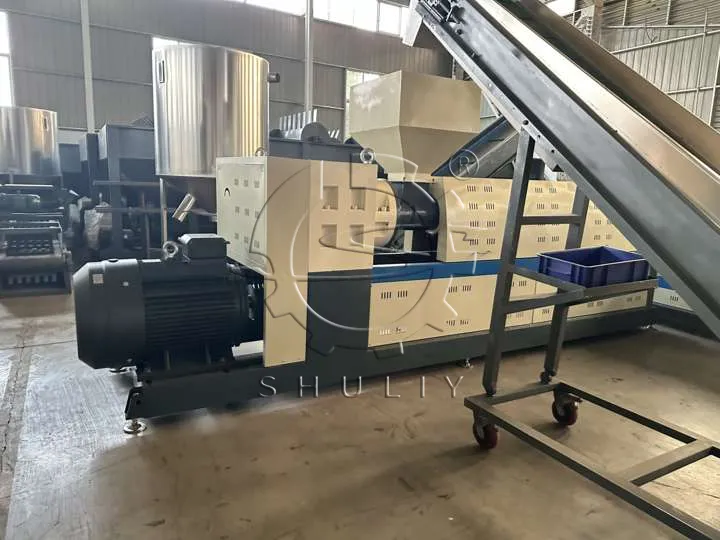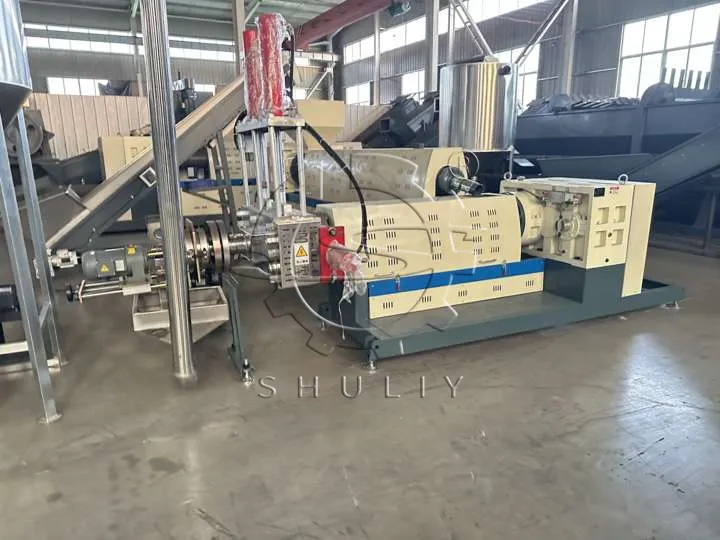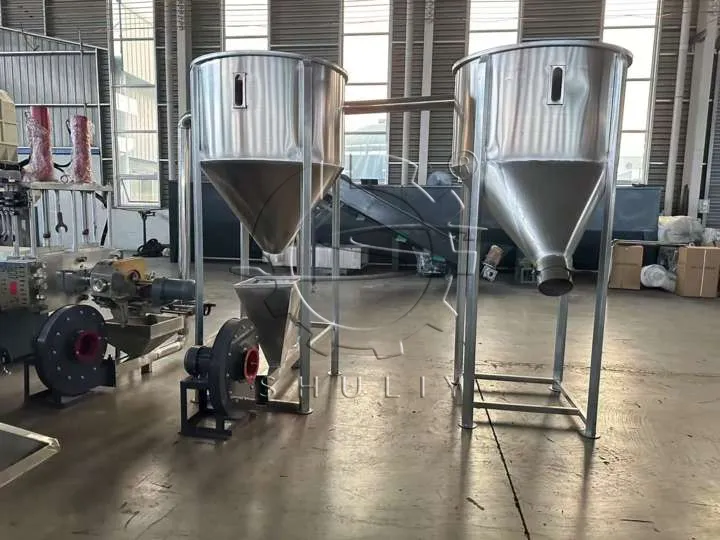Mashine ya Kurudisha Plastiki Imara: Suluhisho la Hatua Tatu kwa Mteja wa Pakistan
Not all plastic scrap is created equal. While post-consumer plastics present challenges of contamination, industrial hard plastics—like HDPE scrap from cable manufacturing—pose a different problem: the need for exceptionally high purity and quality in the final recycled pellets. A standard recycling machine often falls short. This article explores the engineering logic behind a custom, multi-stage hard plastic recycling machine, using a real-world application in Pakistan to illustrate why such a system is critical for demanding industrial recycling.



The Quality Imperative for Industrial HDPE Scrap
Our client, Worldwide cables Pvt ltd, a leading cable manufacturer in Pakistan, generated significant volumes of HDPE cable sheathing scrap. Their goal was not merely to dispose of this waste, but to recycle it into high-grade pellets for reuse in their own production lines. This created a stringent quality requirement. The final pellets had to be free of micro-impurities, perfectly homogenized, and possess consistent melt flow characteristics. Improving pellet quality from recycled HDPE was not just a goal; it was a necessity. A conventional single or dual-stage pelletizer could not reliably achieve this, as it lacked the necessary refining and filtration capabilities.
Engineering the Solution: The Logic of a Three-Stage Process
To meet this quality benchmark, a more sophisticated approach was required. The core of the solution was a custom-designed three-stage plastic pelletizing machine. This multi-stage process is engineered to systematically purify and refine the material.
- Stage One: Primary Plastification. The first and largest extruder (a 110kw SL-220 model) performs the initial melting and homogenization of the clean, crushed HDPE flakes. This stage is supported by electromagnetic heating for rapid, energy-efficient temperature control.
- Stage Two: Secondary Homogenization. The molten plastic is then fed into a second, smaller extruder (a 55kw SL-180 model). This stage’s primary function is to further mix the material, ensuring a completely uniform melt and eliminating any inconsistencies from the first stage.
- Stage Three: Fine Filtration and Pressure Stabilization. This is the critical stage that sets this advanced hard plastic recycling machine apart. A third, smaller extruder is dedicated to pushing the perfectly homogenized melt through a final filtration system before the die face. This allows for extremely fine filtering without creating excessive back-pressure on the main extruders. This process is protected by a pelletizer with a hydraulic screen changer, allowing for continuous operation even if a filter screen becomes clogged. The result is exceptionally clean pellets with consistent density and shape.
While the three-stage pelletizing process is the core of this advanced system, its success hinges on the meticulously planned stages that precede and follow it. The solution provided to Worldwide cables was a complete, end-to-end line. It begins with a powerful plastic crusher to break down the tough HDPE scrap.
The crushed material then enters a complete plastic washing and drying system, which includes high-speed friction washer and a washing tank to scrub away surface contaminants. A multi-step Drying Machine process ensures the flakes are thoroughly dry before extrusion—a critical step to prevent imperfections. Following extrusion, a high-speed Pellet Cutting Machine creates uniform granules, which are then screened and conveyed into a Pellet Silo for storage, ready for reuse.
A Proven Cable Waste Recycling Solution in Pakistan
This custom-built hard plastic recycling machine was delivered to the Worldwide cables facility in Pakistan. The line successfully transformed their HDPE cable scrap into high-quality pellets that met their demanding internal standards. This cable waste recycling solution allowed them to create a closed-loop system, significantly reducing raw material costs and enhancing their sustainability credentials. The project serves as a prime example of how a deep understanding of a client’s material and quality requirements dictates the engineering of the right HDPE recycling line.
For industrial applications where pellet quality is paramount, a standard machine is not enough. A custom-engineered, multi-stage recycling solution is often the only way to turn specific industrial scrap into a high-value asset. Contact our engineering team to discuss your unique material challenges.
